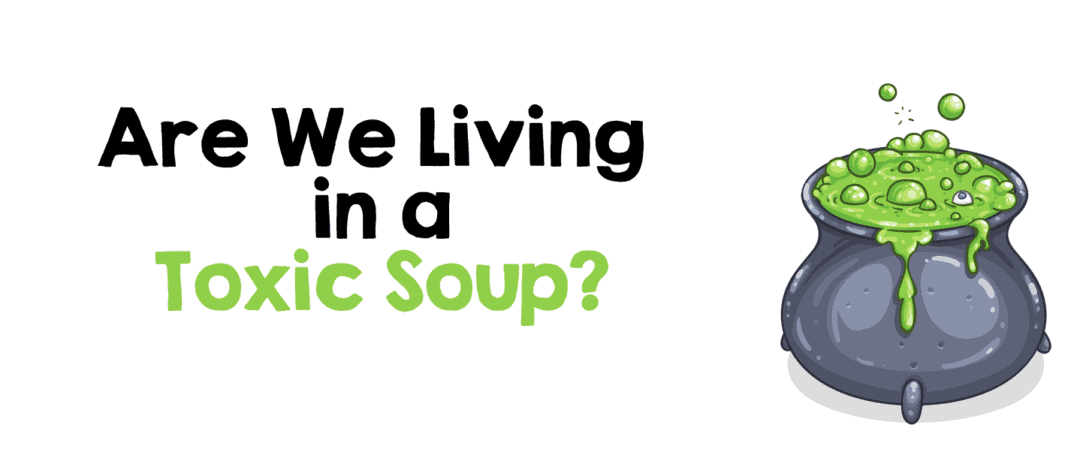When tears don’t drain properly you get “Toxic Soup.” (and the “Toxic Soup Syndrome!”)
I should update this title to read “Are Our Eyes Living in a Toxic Soup?”
When I first posted on punctal plugs here: https://www.eyethera.com/blog/what-about-punctal-plugs-or-why-not-dam-up-those-damn-tears I alluded to the risks of “keeping the dirty bathwater in,” when punctal plugs are used to treat dry eyes. A recent publication in the Canadian Journal of Ophthalmology put a spotlight on this “Toxic Soup Syndrome” when they retrospectively reviewed cases of this, in a study published here: https://www.canadianjournalofophthalmology.ca/article/S0008-4182(23)00108-4/fulltext
Titled: “Clinical features and management of keratoconjunctivitis associated with inadequate tear drainage”
Paraphrasing their findings: The study was done by reviewing records obtained by selecting “Toxic Soup Syndrome” in an Electronic Medical Record base. 35 eyes were found to have this problem, with the majority being women at an average age of mid-sixties (ranging from the 50’s to 80’s). All patients experienced red, teary eyes and had Rosacea or meibomian gland disease. About a quarter of them had glaucoma, and a similar number developed a reduced ability to repopulate the surface corneal cells (so-called limbal stem cell deficiency - a potentially blinding eye disease). Most were using topical medications on presentation. All eyes had blocked tear drainage (in the way of “punctal plugs, cauterized puncta, or punctal and (or) canaliculus stenosis”). Treatment required stopping all preserved topical medications and using some type of anti-inflammatory therapy. Three quarters of patients improved after improvement of their tear drainage.
This type of study helps to demonstrate how important the normal “circulation” of the “lifeblood” (as tears) is to the health of the surface of the eyes. It also helps to point out how toxic typical topical medications can be (glaucoma medications being a common one - while I’ve posted on this, there is an excellent review of the “Selective Laser Trabeculoplasty” I endorse for most glaucoma patients as first-line therapy (instead of drops) from the Glaucoma Research Foundation, here: https://glaucoma.org/uk-research-study-reports-laser-based-glaucoma-treatment-is-more-successful-and-cost-effective/?gclid=Cj0KCQjwmN2iBhCrARIsAG_G2i7oVuKQ3DfAYzOTEgpFMSW_TVFv40O6pSNdYZLotkADaL1uitq2iXEaAot1EALw_wcB ). Preserved drops of every kind contain chemicals (preservatives) capable of killing - or at least inhibiting - all kinds of germs (from otherwise growing in the bottles dispensing these drops). Any chemical capable of this great feat, is also capable of hurting the tear-producing cells and glands that make our tears - so contributing to this “Toxic Soup.”
Any eyelid or tear duct problem that impairs the normal passage of tears from the eye’s surface - to the nose (I recently reviewed the “normal” pathway for tears to leave our eyes, other than pouring over the lids and down the cheeks, here: https://www.eyethera.com/blog/zmhihjvx9qfdibtgi1f2ppmkfj9fdr ) has the ability to lead to this “Toxic Soup.” Seeing an eye specialist who can diagnose and treat this problem is important to maintaining the health of your eyes - but in almost every case, prevention can be easier than the “pound of cure” that is otherwise needed once this toxic soup begins to damage the surface - and the glands supporting that surface. Healthy eyelids can make healthy tears and help keep eyes happy and healthy by providing that proper “circulation” for the surface of the eyes. Dry eye specialists can help you avoid this “Toxic Soup Syndrome!”
To schedule an appointment with Dr. Jaccoma, call Excellent Vision at either of these two dry eye offices:
(1) 155 Griffin Rd, Portsmouth, NH 03801 (603) 574-2020
(2) 3 Woodland Rd, STE 112 Stoneham, MA 02180 (near Boston) (781) 321-6463

